calsfoundation@cals.org
Beulah Lee Sampson Flowers (1883–1965)
Beulah Lee Sampson Flowers was an African-American educator, community leader, political activist, and businesswoman who was also a mentor to Maya Angelou.
Beulah Sampson was born on January 10, 1883, in Hempstead County, Arkansas. Her parents, John Sampson Sr. and Frances Johnson Sampson, were ex-slaves and farmers who lived in the Ozan and Mine Creek townships of Hempstead County. According to the Sampson-Flowers oral tradition, Beulah was the youngest child of approximately twenty-three full and half siblings. Family members debate the exact number of her siblings.
She received a public school education in Hempstead County and attended Bowen Seminary in Clow (Hempstead County). Sampson completed her education at Williams Industrial College, a vocational training school for African Americans, in Little Rock (Pulaski County). She obtained her teaching license in 1902.
On November 11, 1909, she married Alonza William Flowers. The couple moved from Hempstead County to neighboring Lafayette County. Alonza Flowers worked as a laborer in the area sawmills and later became an insurance agent for Universal Life Insurance Company. Beulah Flowers taught in the public schools of Stamps (Lafayette County) and, along with her husband, ran the family’s grocery store, A. W. Flowers and Sons. The Flowerses raised their sons W. Harold, Cleon, and Curtis in the small community.
Flowers supported the civil rights work of her son W. Harold Flowers, working as his secretary and helping him to organize the Committee on Negro Organizations (CNO), an Arkansas civil rights group that was founded in Stamps. Flowers was not afraid to stand up for her political beliefs, and hers was the first signature on a petition that the CNO submitted to the governor of Arkansas that demanded equalization of educational opportunities and facilities for black citizens of Arkansas.
Flowers was also a community leader. She taught literacy classes to the senior citizens of Stamps and was an educator at a community school during the Great Depression. She taught classes pertaining to hygiene, first aid, healthcare, and self-sufficiency. Her students learned how to plant trees and community gardens as well as can fresh fruit and vegetables.
Flowers also mentored several members of Stamps’ African-American community, including a young Maya Angelou. After Angelou was sexually assaulted as a child in St. Louis, Missouri, she stopped speaking after her rapist was murdered. Her mother ultimately sent her back to her paternal grandmother in Stamps to recover and heal. Angelou’s grandmother, Annie Henderson, introduced Angelou to Flowers to help her overcome her trauma. The two read and discussed classical literature, which Maya later credited with helping her to reclaim her voice and self-confidence. In her book I Know Why the Caged Bird Sings, Angelou described how Flowers emphasized the importance of the spoken word to her, saying: “Now no one is going to make you talk—possibly no one can. But bear in mind, language is man’s way of communicating with his fellow man and it is language alone which separates him from the lower animals… Your grandmother says you read a lot. Every chance you get. That’s good, but not good enough. Words mean more than is set down on paper. It takes the human voice to infuse them with the shades of deeper meaning.”
After their home burned in the 1950s under suspicious circumstances, Beulah and Alonza Flowers moved into the household of their son Cleon in Pine Bluff (Jefferson County).
On January 10, 1965, Beulah Flowers died in Pine Bluff. She is interred in Bellwood Cemetery in Pine Bluff. A small portion of her family papers is held by the University Museum and Cultural Center at the University of Arkansas at Pine Bluff (UAPB).
For additional information:
“And So Shall She Reap: The Seeds of Beulah Flowers Exhibit.” University Museum and Cultural Center, University of Arkansas at Pine Bluff.
Angelou, Maya. I Know Why the Caged Bird Sings. New York: Random House, 1970.
Beulah Flowers and Family Collection (Unprocessed). University Museum and Cultural Center. University of Arkansas at Pine Bluff.
“Flowers Family Will Be Subject of UAPB Exhibit.” Pine Bluff Commercial, March 10, 1999, p. 4C.
“Jubilee: Celebrating Our Cultural Heritage.” Pine Bluff Commercial, April 18, 1999, p. 4D.
Siony Flowers
University of Arkansas at Pine Bluff
 Early Twentieth Century, 1901 through 1940
Early Twentieth Century, 1901 through 1940 Education, Elementary and Secondary
Education, Elementary and Secondary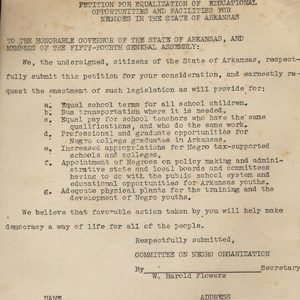 CNO Petition
CNO Petition 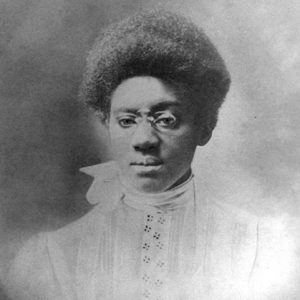 Beulah Flowers
Beulah Flowers 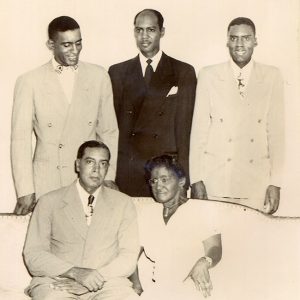 Flowers Family
Flowers Family 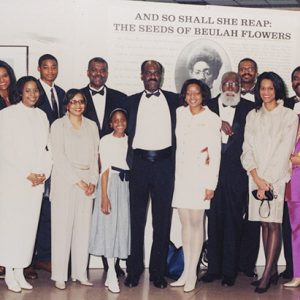 Flowers Family at UAPB
Flowers Family at UAPB 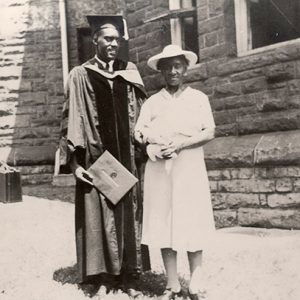 Cleon and Beulah Flowers
Cleon and Beulah Flowers 



Comments
No comments on this entry yet.